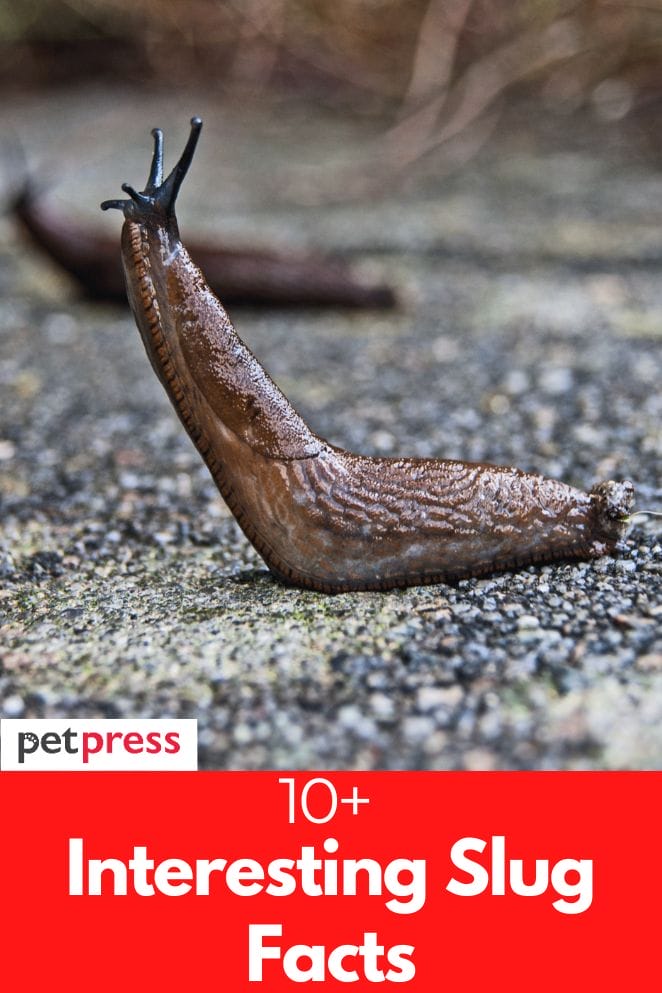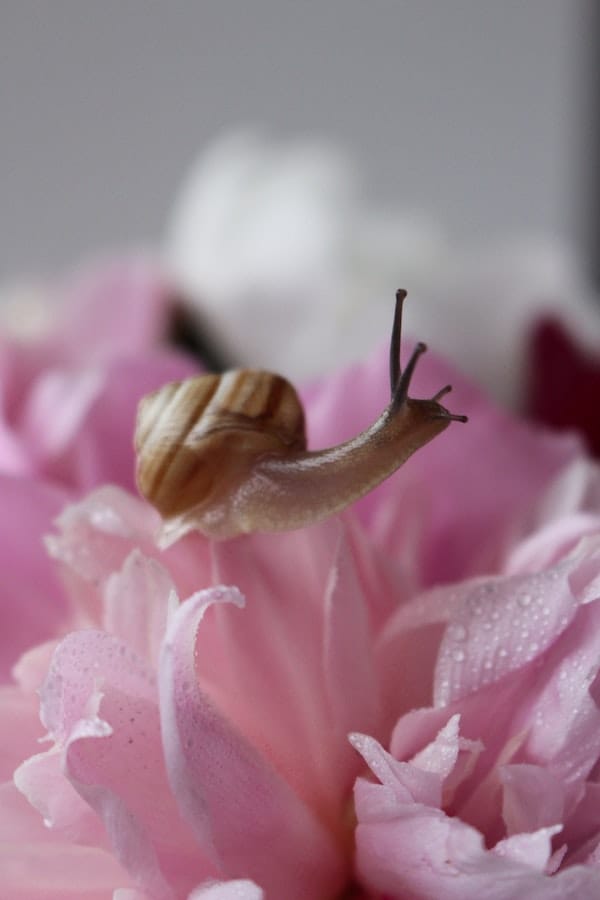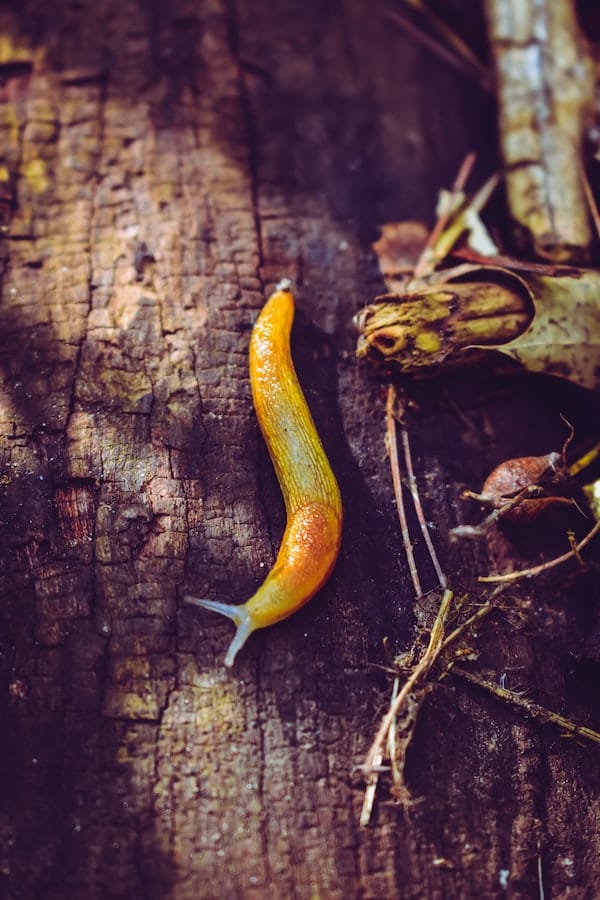
Slugs are slimy, slimy creatures that fascinate kids and adults alike.
These slow-moving mollusks may not be considered glamorous or exciting, but slugs have some pretty impressive characteristics!
From their keen sense of smell to their ability to survive in a range of environments, there’s a lot to learn about slugs.
Here are some interesting facts about these slimy friends that you may not have known.
Fact #1: Slugs have a wonderful sense of smell.
Slugs are born with an impressive sense of smell thanks to their large and sensitive chemosensory tentacles.
These tentacles can detect food sources and locate mates from far distances. In addition, slugs have the ability to differentiate between different smells and identify a range of odors.
This sensory organ is so effective that it’s been used in research and development of artificial electronic noses.
This incredible sense of smell is a truly impressive trait in these little creatures.
Fact #2: Slugs have an amazing ability to regenerate their body parts.

Slugs are highly resilient creatures that have the remarkable ability to regenerate lost body parts.
This includes eyes, tails, antennae, and even internal organs! If a slug loses an antenna or eye, these can grow back in just a few weeks.
Amazingly, they can even re-grow their entire head if it’s been cut off – although this process will take several weeks or months.
This impressive ability makes slugs incredibly resilient creatures that can survive a range of situations.
Fact #3: Slugs can survive in a range of environments.
Slugs are incredibly adaptive creatures that can survive and thrive in a variety of different habitats.
They are found on every continent except for Antarctica and are able to live in a range of climates, both hot and cold.
From deserts to rainforests, slugs can survive in just about any kind of environment.
They are also highly adaptive when it comes to their food sources, as they will consume a variety of different plants and fruits.
This adaptability is why you’ll find slugs nearly everywhere!
Fact #4: Slugs have both male and female reproductive organs.
Slugs are hermaphrodites, which means that they have both male and female reproductive organs.
This means that, unlike other animals, slugs don’t need to find a mate in order to reproduce.
However, they still do mate and exchange sperm with other slugs in order to increase their chances of successful breeding.
This hermaphroditic nature has enabled the slug population to spread quickly and inhabit new regions.
Fact #5: Slugs are amazing escape artists.
Slugs may be small, but they possess an impressive ability to escape tight situations.
They can squeeze through very small openings and often outwit their predators by escaping into narrow crevices or burrowing underground.
In addition, slugs can drop their body fluids in order to make themselves more slippery and help them slip away.
This ability to escape gives slugs a fighting chance when it comes to avoiding danger!
Fact #6: Slugs have a special protein that helps them survive.

Slugs possess a special type of protein called mucoprotein, which helps them survive in harsh and dry environments.
This protein creates a protective barrier on the slug’s skin which traps moisture and prevents them from drying out.
It is believed that without this special protein, slugs would be unable to survive in some of the drier climates they inhabit.
This amazing natural adaptation helps slugs thrive in a range of different habitats.
- Related post: A Definitive Guide for 200+ Animal names
- Related post: Interesting Lizard Facts
Fact #7: Slugs have an incredible lifespan for their size.
Slugs may be small creatures, but they possess an impressive ability to live long life.
Depending on the species, slugs can live up to 4 years – much longer than other invertebrates of similar size!
This incredibly long lifespan is due in part to their remarkable regenerative abilities, as well as their ability to survive in a variety of climates and habitats.
Fact #8: Slugs have some unique defense mechanisms.
Slugs possess a range of unique defensive strategies that help them survive in their environment.
For instance, some species of slugs produce a special slime that contains toxins that can make them unpalatable to predators.
Other species will release foul-smelling mucus when they are disturbed, while some slugs can even play dead if they feel threatened!
All these amazing defense mechanisms help keep these small creatures safe from harm.
Fact #9: Slugs are omnivores and can eat just about anything.
Slugs are true omnivores, meaning they will consume a variety of different foods.
From fruits and vegetables to decaying matter, slugs will happily munch on whatever is available.
This adaptability is what makes them such successful creatures, as they are able to survive in a range of different habitats and climates.
In addition, slugs can eat their own weight each day, which shows just how voracious their appetites can be!
Fact #10: Slugs have fascinating behaviors and social structures.

Slugs may be small, but they exhibit a range of fascinating behaviors that can help them survive in the wild.
Most species of slugs are solitary creatures, although some have been observed to live in small colonies or groups.
When it comes to mating, slugs typically engage in a courtship ritual that involves the exchange of pheromones and other signals.
Slugs also can adapt to changes in their environment quickly and can even learn from past experiences!
Fact #11: Slugs can play an important role in the ecosystem.
Slugs may not be the most glamorous creatures, but they can still play a vital role in any given ecosystem.
These small animals are natural decomposers and help keep forest floors clean by eating decaying matter.
They also act as prey for a variety of predators, forming an important link in the food chain.
Finally, many species of slugs are important pollinators and help disperse the seeds of various plants and flowers throughout their habitat.
Slugs are often overlooked but possess a wide variety of fascinating adaptations that make them successful in their environment.
From their protective slime to their impressive lifespans, these small creatures are worthy of admiration and respect.
Slugs can play an important role in the ecosystem as natural decomposers, pollinators, and prey for predators – making them a vital part of any habitat.


GIPHY App Key not set. Please check settings